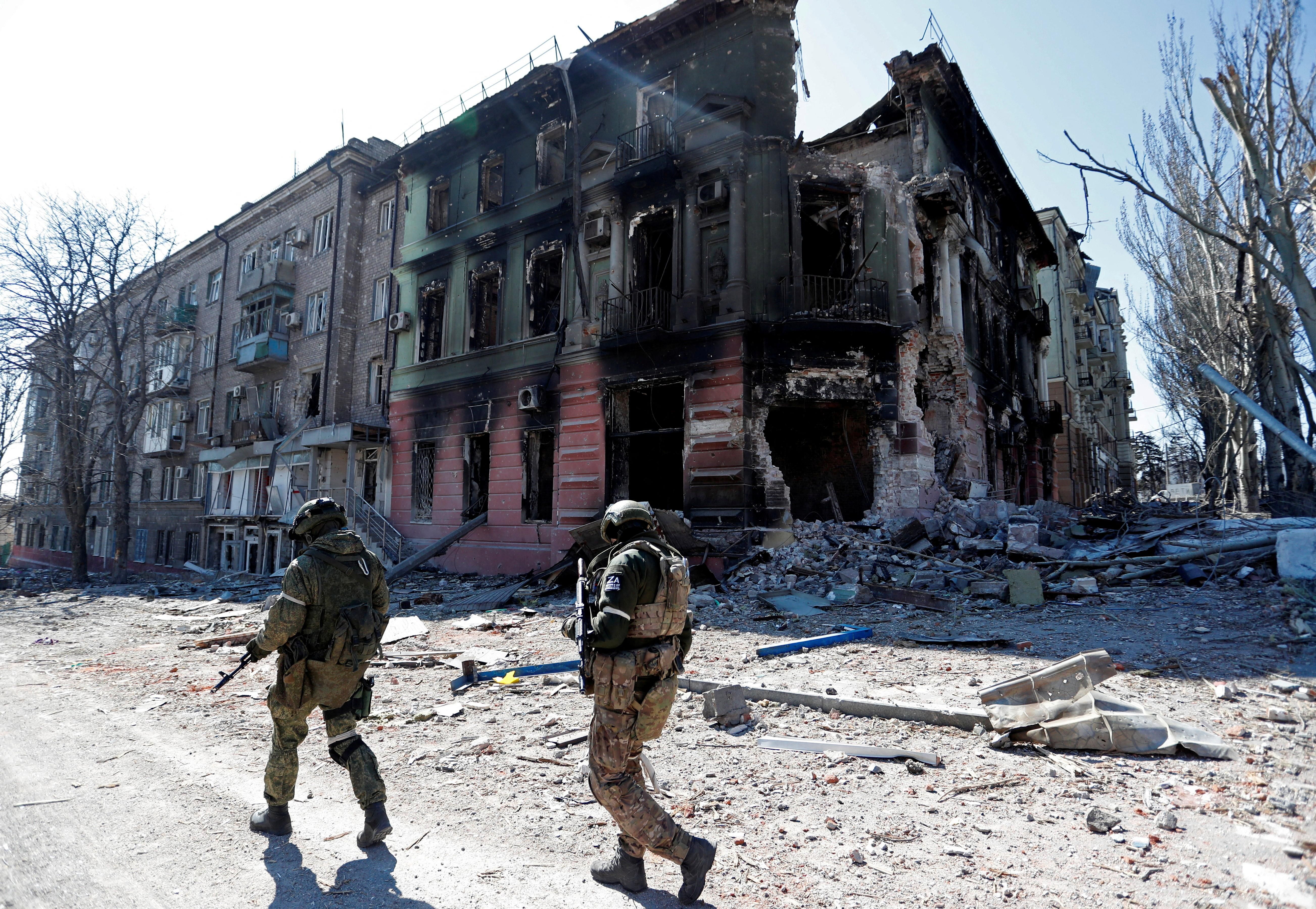Is Mariupol on the brink?
The fight for the strategic southeastern Ukrainian port of Mariupol continues to rage. Unconfirmed reports late Monday pointed to the possible use of chemical weapons dropped by a Russian drone. US and British officials said they were monitoring reports of the possible chemical attack. The fate of Mariupol is critical for the next phase of the war. If Russia is able to take the city, it would be able to do two things: establish a land bridge to Crimea and punch northward as part of a broader effort to encircle Ukrainian forces fighting in the Donbas. As Russia now points its army towards a full-fledged assault on eastern Ukraine, Kyiv has warned of the bloodiest land battles in Europe since World War II and pleaded for more military assistance from the West.
Can Sharif bring economic healing to Pakistan?
Pakistan’s new prime minister doesn’t have an enviable job. Parliament elected Shehbaz Sharif on Monday amid economic and political turmoil in the Islamic Republic following Imran Khan’s ouster on Saturday. Khan’s party resigned en masse on Monday, part of a larger mobilization of supporters the former PM hopes will lead to street protests and agitation against the new government. Sharif, meanwhile, hit the ground running on economic matters, raising the minimum wage and some government pensions — a bid to help average Pakistanis cope with high inflation and soaring fuel prices. He is expected to form a broad coalition government and will aim to get Pakistan’s IMF funding back on track, along with electoral reforms, before calling a new election to try and secure a fresh mandate.
Finland edges toward NATO
Finland’s government is scheduled to issue a highly anticipated report on Thursday about the future of its security policy. If, as expected, the report argues that Russia’s invasion of Ukraine has exposed new threats to the security of Finland, which shares an 830-mile-long border with Russia, its parliament will take up the question of whether to join the NATO alliance, a step Helsinki has long resisted. Public opinion in Finland has shifted. Just after Russia launched the war, polls showed for the first time that a majority of Finns favored NATO membership. A recent survey found that 61% favored joining, just 16% opposed it, and 23% were undecided. A similar debate is underway in Sweden, which might well follow Finland’s lead. Russian officials have warned of “political and military consequences” and that another expansion of NATO would force Russia to “rebalance the situation.” Finland and Sweden could formally apply as early as June, and NATO would probably accept them quickly.More For You
How is the US is reshaping global power dynamics, using tariffs and unilateral action to challenge the international order it once led? Michael Froman joins Ian Bremmer on GZERO World to discuss.
Most Popular
In this Quick Take from Munich, Ian Bremmer examines the state of the transatlantic alliance as the 62nd Munich Security Conference concludes.
At the 2026 Munich Security Conference, Brad Smith announces the launch of the Trusted Tech Alliance, a coalition of global technology leaders, including Microsoft, committing to secure cross-border tech flows, ethical governance, and stronger data protections.
